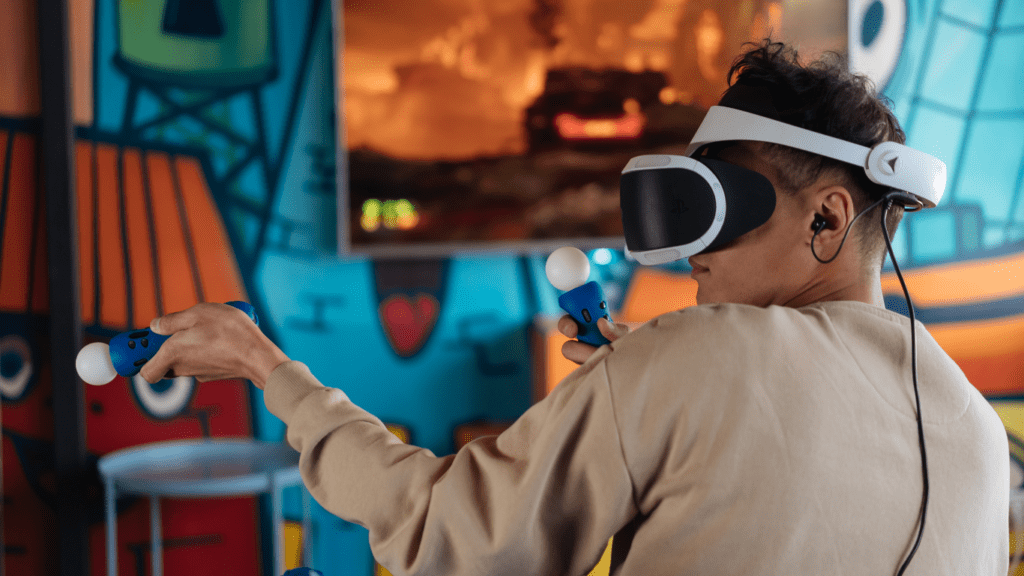Exploring Blockchain Technology in Gaming
Blockchain technology introduces innovative solutions to the gaming industry, enhancing security and providing true ownership of in-game assets.
The Basics of Blockchain
Blockchain is a decentralized ledger that records transactions across multiple computers.
Each block contains a timestamp, transaction data, and a cryptographic hash of the previous block. This structure ensures data integrity and transparency.
- Decentralization: Unlike centralized databases, blockchain spreads control across a network, reducing the risk of a single point of failure.
- Immutability: Once added, data cannot be altered without interrupting the entire network, ensuring security.
- Transparency: Every transaction is visible to all participants, fostering trust.
How Blockchain Integrates with Gaming
Integrating blockchain in gaming can enhance various aspects of gameplay and asset management.
- True Ownership: Blockchain allows players to own in-game assets securely. These digital assets can be traded, sold, or kept permanently.
- Interoperability: Games using blockchain can enable asset transfers across different platforms and games, enhancing the user experience.
- Security: Blockchain’s decentralized nature enhances security, reducing vulnerabilities and potential hacks.
- Smart Contracts: These self-executing contracts with terms directly written into code enable automatic transactions without third-party intermediaries.
Blockchain technology in gaming stands to revolutionize how players and developers interact with digital assets, offering new opportunities and posing unique challenges.
Opportunities Presented by Blockchain in Gaming
Blockchain technology offers significant advantages in the gaming industry.
These opportunities range from enhanced security to new revenue models, transforming how games are developed and played.
Enhanced Security Features
Blockchain provides robust security features, which are vital for gaming platforms.
Decentralized ledgers make it nearly impossible for hackers to alter data. Players can trust the integrity of in-game transactions.
By using cryptographic principles, blockchain ensures that player data remains secure, enhancing overall trust in the gaming ecosystem.
True Ownership and Asset Interoperability
With blockchain, players experience true ownership of their in-game assets. These assets exist on a decentralized ledger, making them transferable across different games and platforms.
This interoperability allows players to buy, sell, and trade items with real-world value.
Blockchain-based games offer users a seamless way to carry their game progress and assets across multiple environments, enhancing the gaming experience.
New Revenue Streams for Developers and Players
Blockchain technology introduces new revenue streams for both developers and players. Developers can create tokenized assets, enabling microtransactions and digital scarcity.
Players benefit from play-to-earn models, where their in-game achievements can translate into cryptocurrency earnings.
By incorporating tokenomics, developers and gamers find new ways to monetize their efforts, creating a more vibrant and profitable gaming economy.
Challenges Facing Blockchain in Gaming
Blockchain technology, while promising, confronts several obstacles in the gaming industry that hinder its widespread adoption.
Scalability Issues
Scalability poses a significant challenge for blockchain in gaming.
Blockchains like Ethereum can process about 15 transactions per second, which is insufficient for high-transaction volume games.
Popular games often require real-time processing, creating bottlenecks on current blockchain networks. Layer 2 solutions, like sidechains, address some issues but aren’t yet fully optimized.
Legal and Regulatory Hurdles
Legal and regulatory hurdles impede blockchain’s growth in gaming. Different jurisdictions have distinct regulations for digital assets and cryptocurrencies, creating a complex legal landscape.
For instance, the European Union has stringent data protection laws under GDPR that may impact blockchain’s immutable nature. Navigating these varying regulations requires significant legal expertise and resources.
Technological Complexities
Technological complexities hinder seamless integration of blockchain in gaming. Blockchain is inherently complex, requiring specialized knowledge to implement effectively.
Developers need to understand smart contracts, consensus mechanisms, and cryptographic security.
Additionally, integrating blockchain with existing game engines and platforms presents compatibility challenges, prolonging development cycles and increasing costs.
Potential Future Trends in Blockchain and Gaming

Blockchain technology continues to evolve. The gaming industry can leverage this growth, leading to new trends that redefine the future of gaming experiences.
Developments in Decentralized Gaming Platforms
Decentralized gaming platforms, built on blockchain, are gaining traction.
They’re transforming the way games are developed, distributed, and monetized.
Blockchain ensures transparency, enabling gamers and developers to interact directly without intermediaries.
This direct connection fosters trust and engagement, improving the gaming community’s overall experience.
- Immutable Records: These platforms use blockchain for immutable records, securing in-game assets and achievements. Players can confidently trade or sell assets, knowing the ownership history is reliable and tamper-proof.
- Smart Contracts: Smart contracts automate transactions and enforce agreements. For instance, a gamer purchasing an in-game item can trust the transaction’s completion without third-party interference. This enhances efficiency and reduces fraud.
- Community Governance: Decentralized platforms often feature community governance models, where players vote on platform changes or game updates. This increases player involvement and creates a more democratic gaming environment.
The Rise of Play-to-Earn Models
Play-to-earn models incentivize gaming by rewarding players with cryptocurrency or NFTs for their time and achievements. These models are redefining in-game economies and player engagement.
- Tokenized Rewards: Players earn tokenized assets, which have real-world value. For example, completing quests or achieving high scores can reward players with tradable tokens or NFTs, providing a tangible benefit for their efforts.
- Player Ownership: Play-to-earn emphasizes true ownership. In traditional games, assets acquired by players are owned by the game publisher. Blockchain changes this, enabling players to truly own and monetize their assets outside the game.
- Economic Opportunities: These models create economic opportunities. Players in emerging markets can participate in play-to-earn gaming, generating income through gameplay. This trend attracts diverse global audiences, expanding the gaming market.
Decentralized gaming platforms and play-to-earn models are paving the way for a more interactive and economically rewarding gaming experience, leveraging blockchain’s transparency, security, and decentralized nature.



